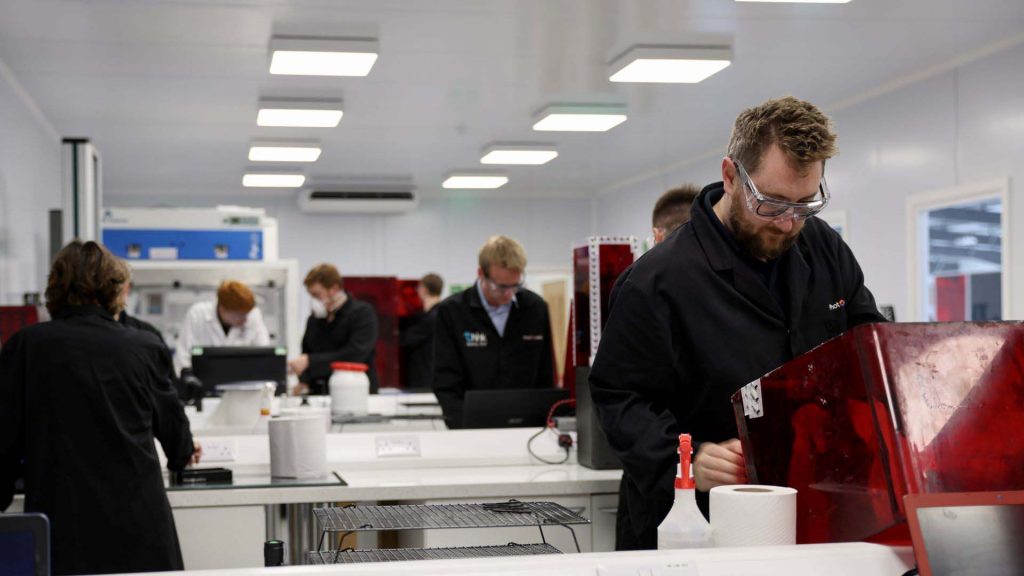Photocentric has obtained backing from Innovate UK for the development of its Low Energy Autonomous Digital (LEAD) factory concept, which aims to provide a more sustainable alternative to injection moulding.
The autonomous 3D printing process developed by Photocentric aims to create a cost and carbon-effective process for printing polymer parts, using recycled materials.
The 3D printers and materials manufacturer was aided by Innovate UK, which backed the project with £2.5 million, as part of the Sustainable Smart Factory investment scheme.
Photocentric said that while plastic injection moulding is traditionally the preferred method of fabrication for large batches, in the case of low-volume applications, AM can be more cost effective as there are no tooling costs to amortise over a batch.
The environmental benefits of AM are significant too, said the 3D printing company, as it allows manufacturers to only produce the required quantity without unnecessary shipping with reduced energy consumption and lighter parts.
The LEAD project is based on Photocentric’s Liquid Crystal Display (LCD) technology, an automated digital process which uses single-flow production lines that start with liquid resin at one end and autonomously deliver functional plastic objects at the other, in scale.
According to Photocentric, this project will also compare the carbon footprint of traditional injection moulding manufacturing versus 3D printing throughout its life cycle.
Future users of this technology should include the miniature manufacturer Games Workshop, one the UK’s largest injection moulders Essentra Components and the manufacturing partner for automotive and rail companies Unipart.
The Manufacturing Technology Centre (MTC) should be in charge of carrying out the carbon analysis derived from each process as an impartial third party.
Photocentric innovative process aims to create usable parts from biowaste and provide a novel energy-viable end-of-life recycling process for thermoset plastics, enabling the UK to manufacture goods without reliance on labour or supply chains.
“We are thrilled to be part of the Smart Sustainable Factory and to be leading a project to build a greener Britain. We are manufacturing plastic parts from waste streams using low energy, reducing storage, minimising transport and materials,” said Photocentric CEO Paul Holt.
“Thanks to the trust the UK government has placed in our technologies and thanks to Innovate UK financial backing, companies like Photocentric can develop strategic and sustainable innovation in manufacturing.”






